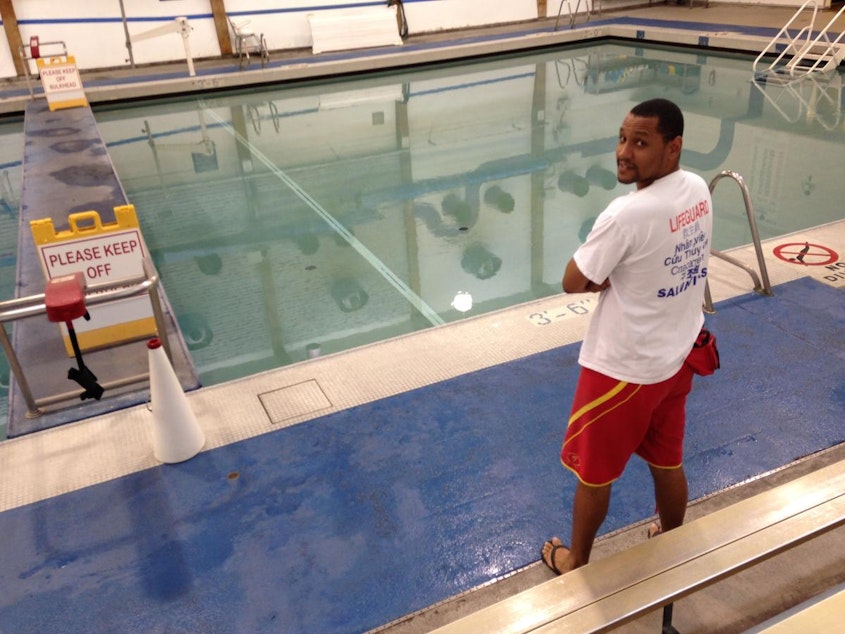Why Drowning Is A 'Cultural Condition'

Public health researchers have struggled with a leading cause of death in young children: drowning.
Black children face the highest risk – even when they're supervised. The most recent data for Washington state shows black children have more than 3.5 times the drowning risk of children of any other race.
Officials still struggle with reasons why, but Alvin Barnes, a black lifeguard and swim teacher, believes it boils down to generational fear.
Barnes learned to swim here in Seattle as a kid. Even his black students ask him, “Can you really swim?” He started to understand the history between black people, swimming and drowning, when he visited relatives in Arkansas and was almost turned away from a community pool.
You're going to see drownings happen. And if you witness one of those you're going to be a little traumatized by it, and it's only natural to pass that on to your kids.
On arrival, he explained that he was there for a lap swim. “As soon as I gave her my money and started walking off, she picked up the phone and called the back office,” he said. “As I came out on the pool deck there was a lifeguard there to meet me.”
Sponsored
The lifeguard assigned him to an easy lane and instructed him to stay out of the way.
“I hopped in the lane and started swimming. And about 150 yards into the swim, the lifeguards came over and pretty much told me, ‘OK, now you can move up to a faster lane.’”
When he told his family about this incident, they responded, “Well, black people don’t swim.”
“Growing up, they would swim in creeks a lot,” he said. “And when you don’t have access to supervised swimming areas, you’re going to see bad stuff happen. You’re going to see drownings happen. And if you witness one of those you’re going to be a little traumatized by it, and it’s only natural to pass that on to your kids. So I see it being passed down from generation to generations.”
Barnes teaches kids, and he also tries to rope the adults into lessons. He’s successful about half the time. Many say they’re afraid of the water.
Sponsored
“They grew up with an adult telling them that they were going to drown or something bad was going to happen to them,” he said. “Or growing up as children, they witnessed a drowning. And that’s one of the big reasons why they want their kids to swim, but they still haven’t been able to get over it themselves.”
Dr. Linda Quan, a pediatrician at Seattle Children’s Hospital, considers drowning a cultural condition. She does research and outreach on drowning and says the city’s effort to train lifeguards of all races and cultures has helped.
She said there's no single reason for drowning disparities – but said there are common factors when you examine the research.
“The high risk people are the people who are not from that area,” Quan said. “So if you go over to Ocean Shores, they say, ‘Oh yeah, it’s those 206-ers who get in trouble.’ If you go Australia they say, ‘Oh yeah, it’s all those people coming from all over the world to swim here. They’re the ones who get in trouble.’”
She interpreted that to mean that "it's being in the water that you're not used to." "Or if you’re not used to water at all. So that’s where people need to recognize, ‘Gosh, this is an environment that’s different for me, and so I need to know how to deal with it.’”
Sponsored
Quan said she hopes that families prepare for their trips to the beach, pool or creek. Relying on 911 doesn't cut it.
“I want people to know there is almost no time when someone’s drowning,” she said. “As a pediatrician, of course I want kids to swim. But I also want their families to learn something about this. They need to know what to watch for.”

